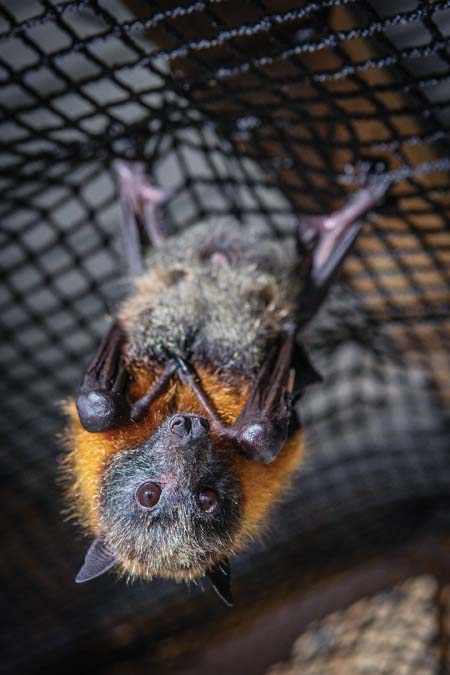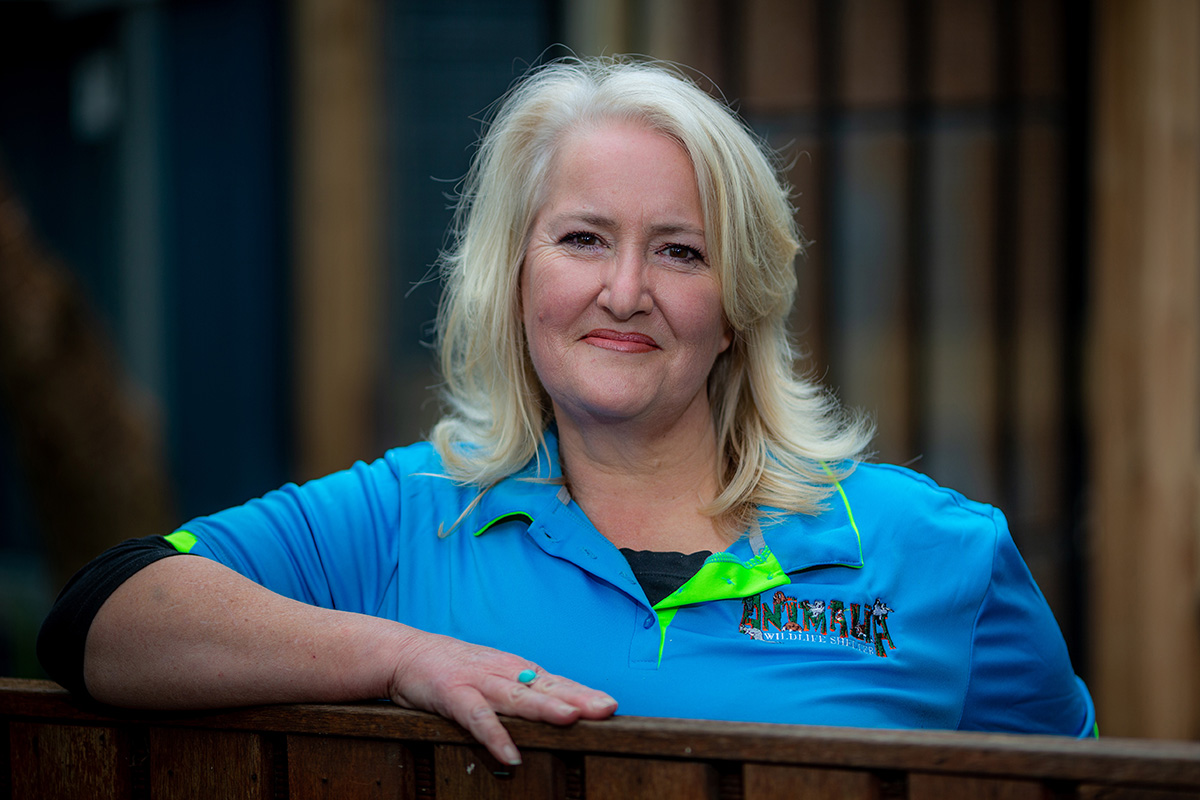
LAWS to protect wildlife from getting caught up in backyard fruit tree netting come into effect on 1 September.
The new regulations are “well overdue and would save native animals’ lives”, Wildlife Victoria CEO Lisa Palma said.
The new regulations require the mesh size of tree netting, either used or sold, to be 5mm by 5mm or less at full stretch. They apply specifically to households – not commercial growers who are already compliant.
The penalty for using fruit netting that does not fit the specification will be $3303 or $660 for advertising or offering it for sale for household fruiting plants.
A quick check is to make sure holes in a net are too small to poke your finger through. This sized net is safe for flying foxes and other small animals.
“We are pleased to see the new laws come into effect given that there is a significant detrimental impact on our wildlife as a result of the wider aperture netting that a lot of people use on their backyard fruit trees,” Ms Palma said.
Animalia’s Michelle Thomas said caring for wildlife – especially flying foxes – injured when caught in nets was a “huge pull on our resources”.
“The ban is something we have all been fighting for,” she said.
Animalia rescuers are often called out to rescue flying foxes caught in nets in the Mornington Peninsula and Frankston areas.
“We have 20 rescuers who are on call and it is better if residents call us before attempting to release badly entangled flying foxes,” Ms Thomas said.
“We never release them straight away because it can take weeks for flying fox wings to heal after suffering tears caused by the nets.
“Sadly, they very often have to be euthanised.”
That means two animals are lost as their young, alone in the bat colony, are left to starve.
Ms Thomas said the bats were key pollinators of eucalypts needed for Australia’s timber industry. “They just want to feed on gum nectar which is very nutritious and when we remove large gums that’s when we create problems,” she said.
“The flying foxes resort to eating fruit from peach, plum or pear trees.”
Ms Thomas said it was disheartening when domestic growers wrapped nets around their trees yet left fruit rotting on the ground. “I tell them to put paper bags around the clumps of fruit they want and let the bats have the rest,” she said. “Then it’s a win/win.”
She said fruit protected that way was safe from pests, such as caterpillars, as well as rain damage.
Ms Thomas said the logging industry also required the natural services of flying foxes which pollinated eucalypt forests devastated by the 2019-20 bushfires.
“The flying foxes roam up and down the east coast pollinating the blue gums and iron barks helping them recover from the fires,” she said.
“If we want a timber industry we have to look after them.”
Ms Thomas warned domestic fruit growers to avoid cheap imported nets that did not comply with the spirit or intent of the law, and which would put them at risk of a fine.
During 2020, Wildlife Victoria responded to 285 cases of wildlife caught in domestic fruit tree netting. These comprised 120 grey-headed flying-fox cases, 35 magpie cases, 19 rainbow lorikeet cases, 16 sulphur crested cockatoo cases and eight ringtail possum cases.
“We believe our case numbers are just the tip of the iceberg, ” CEO Ms Palma said.
Peninsula residents can call Animalia for help, or to donate, on 0435 822 699.
First published in the Southern Peninsula News – 31 August 2021




